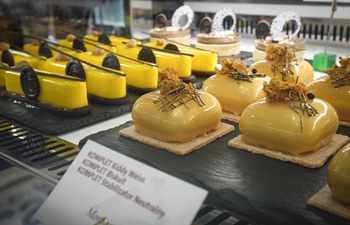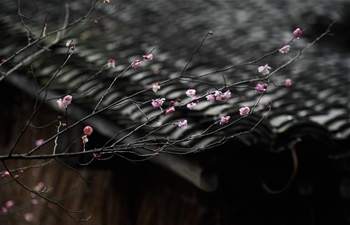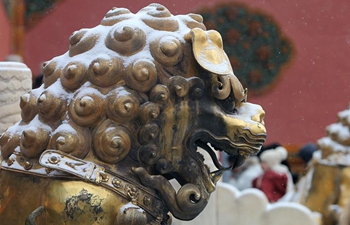ADDIS ABABA, Feb.18 (Xinhua) -- Ethiopia has recently opened its first botanic garden with an eye to making it a center of education, research and conservation in Ethiopia and the wider world.
Lying on 705 hectares of land in the northern outskirts of Ethiopia's capital Addis Ababa, Gulele Botanic Garden (GBG) was opened to the general public in December 2018, after 30 years of hard work.
Speaking to Xinhua, GBG Research Director Birhanu Belay said the primary activity of GBG is conservation activity.
"The second one is research activity on how to collect, propagate and on how to reintroduce back to their natural habitats. The facility also supports practical education with final purpose being eco-tourism," said Belay.
With Ethiopia having five different agro-ecological zones and more than 6,500 plant species, Gulele Botanic Garden, for now, will give priority to indigenous and endangered plant species, he said.
Ethiopia has extreme geographical variations ranging from Dalol depression in northeast with around 1,100 meters below sea level to Ras Dashen Mountain in northwest Ethiopia at around 4,550 meters above sea level.
"GBG gives priority to plant species that have economic importance. It also give priority for endemic and endangered plant species, as well as plant species that are ecologically and medicinally important," he said.
Currently, GBG houses around 700 indigenous plant species and around 65 critically endangered plant species.
GBG is planning to expand its infrastructure, including plant laboratories, administrative building and greenhouses.
Belay told Xinhua that staff at GBG have reached out to Chinese plant research institutes to get capacity training and learn valuable experiences, including from Wuhan Botanic Garden.
"We're collaborating with plant research institutions and botanic gardens which are outside of Ethiopia like Wuhan Botanic Garden," he said.
"Wuhan Botanic Garden has previously invited us to get a capacity building training. I was in China three months back to learn from the experiences of Wuhan botanic garden on how to propagate plants, how to maintain the amenity of the garden and proper ways of plant landscaping," said Belay.
Currently, GBG is also undertaking collaborative educational activities with educational institutes to attract schoolchildren who may want to pursue plant sciences as their studies in future life.
One such student is 10-year-old Nathan Wondimu, a fourth grader from Holy Savior School in Addis Ababa, who said coming to the botanic garden has further heightened his interests in Ethiopia's plant heritage.
"I came to this garden to see the different kinds of plants. I love seeing different kinds of plants, trees and flowers. I plan to come in the winter break to visit the site again," Wondimu told Xinhua.













